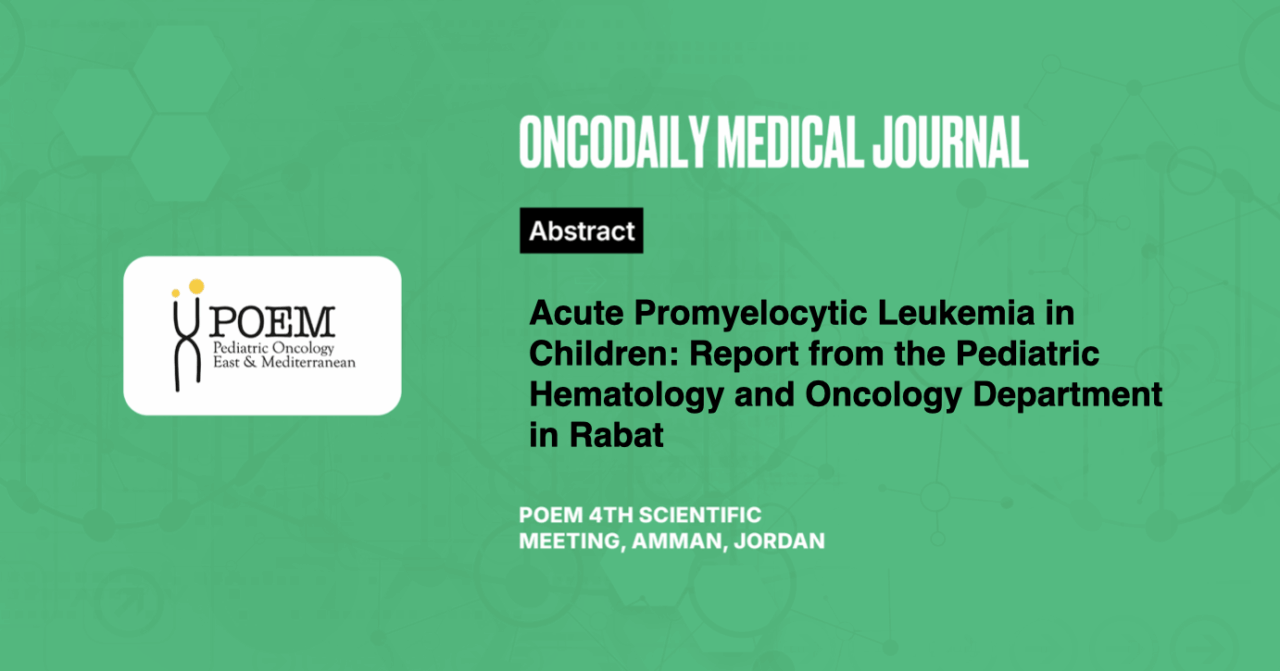Acute Promyelocytic Leukemia in Children: Report from the Pediatric Hematology and Oncology Department in Rabat
Abstract
Introduction: Acute Promyelocytic Leukemia (APL) is a rare subtype of acute myeloid leukemia. The introduction of all-trans retinoic acid (ATRA) has revolutionized APL treatment, transforming this once fatal leukemia into a highly curable disease. This study aims to report the experience of the hematology and oncology department of Rabat in the treatment of APL.
Methodology: This is a retrospective, analytical, and descriptive study of all patients under 15 years old diagnosed with APL and followed at the Pediatric Hematology and Oncology Department (PHOD) in Rabat between January 2012 and December 2022.
Results: During the study period, 12 children diagnosed with APL among 247 cases of AML were treated at PHOD in Rabat. The median age at diagnosis was 10.5 years, with a male predominance (sex ratio: 2). Three patients (25%) presented with a leukocyte count exceeding 10,000/mm³ at diagnosis. Four patients (33%) exhibited the hypogranular M3v variant. Eleven patients (92%) underwent induction chemotherapy combining cytarabine and daunorubicin, with eight receiving it combined with ATRA. Among them, three patients (37.5%) presented “Pseudotumor Cerebri” as a complication. Two patients (17%) died: one from leukostasis prior to treatment and the other from disseminated intravascular coagulation (DIC) during induction chemotherapy. Ten patients (75%) achieved complete remission (CR) following induction chemotherapy. Two of them did not receive ATRA and relapsed after the end of treatment.
Conclusion: The combination of arsenic and ATRA has transformed the prognosis of APL from one of the most severe to one of the most curable forms of leukemia. However, these treatments are not available in resource-limited countries. In Morocco, despite the availability of only ATRA, eight patients survived thanks to a better understanding of therapeutic adaptations and improved supportive care management.





